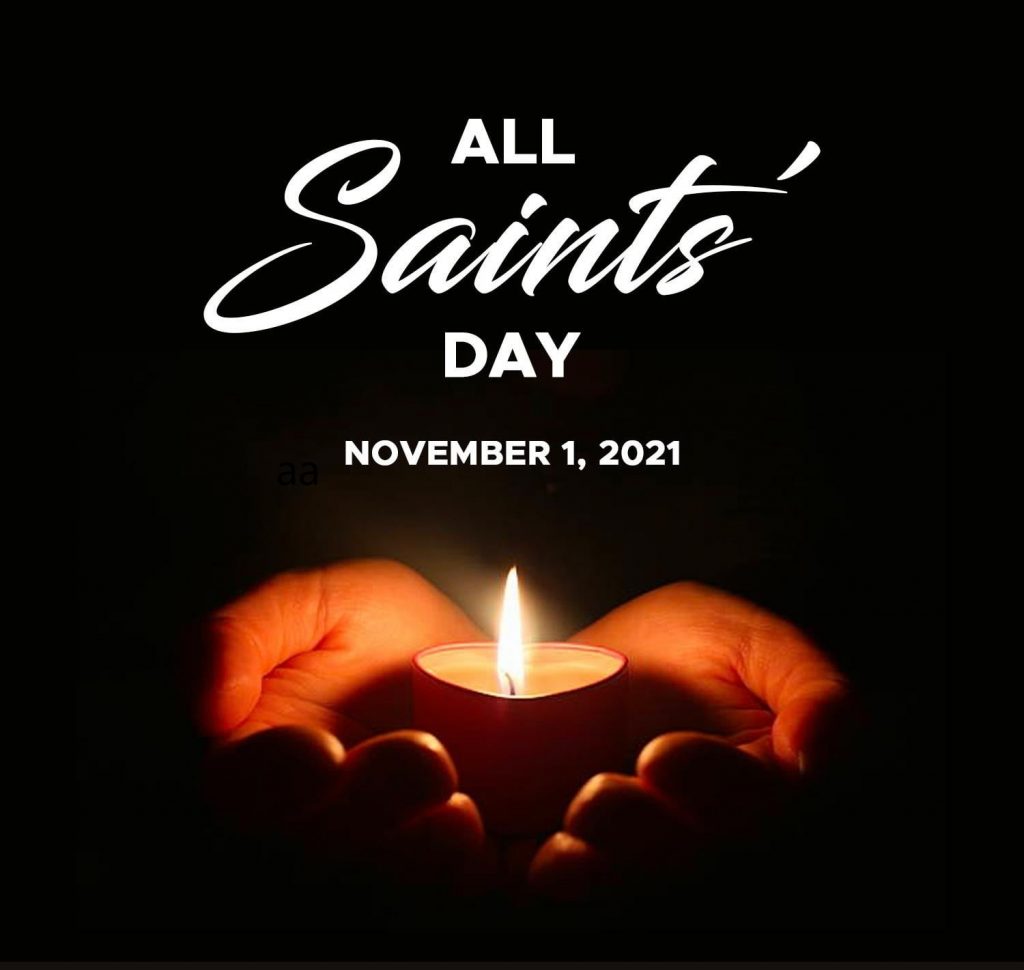Do We Believe In Purgatory?: Its Beauty, Hope and Light
I recall it was a day prior to Halloween eve, the young students in my previous CCD class in NYC were surprised when asked to write down on a ¼ art paper the names of their loved ones who have passed away and to drop the said paper in a tin can placed at the center of the classroom’s makeshift altar. Thereafter, they were invited to form a circle around the altar holding hands and praying together for the departed souls. It was made sure that it was done before the start of the class so they can focus more on the prayer. All of them felt happy about the thought that should they offer a prayer for the souls of their dead loved ones, there is a possibility that the latter’s sins will be forgiven and that they could be brought up to Heaven to be with God where there will be eternal happiness. Believe it or not, one child even asked if she could also include the name of her dead favorite pet dog, which I have allowed for her sake (but reminding everyone that the prayer is meant for dead people)!

The topic which was discussed with the kids for that particularly day was about “All Saints Day” and “All Souls Day”, two important and solemn feasts of the Catholic Church and are traditionally observed on November 1 and 2, respectively. The kids had quite a hint about “Heaven” and “Hell” probably they have heard it from their parents, i.e., good people go to Heaven and that the bad ones will be placed in Hell. A brief description about Heaven and Hell was presented to them, particularly placing emphasis on how people’s souls look and feel while in Heaven and in Hell, i.e. in Heaven, people are happy and that people in Hell are unhappy and suffers a lot. The allegory of the long spoons made the kids better understand and appreciate more on how souls look and feel when in Heaven and in Hell. Have you heard about this story? It is a folklore known in certain countries where groups of people where placed in 2 rooms and were given the same long spoons to relish a delish beef stew for dinner. Given the same level playing field, one group of people helped each other so as to successfully eat the food, enjoying each other’s meal, making them satisfied and happy. On the other hand, those in the other room because of their hopelessness and bad attitude towards each other, were not able to eat it, feeling and looking starved and unhappy. Can you guess how the good guys in the other room overcame the challenge?
Going back to the kids in class. After the lesson on heaven and hell, they were asked about Purgatory. However, they simply gave me innocent blank stares. They were a bit tongue tied even the child with the most curious and inquisitive mind had to stop for a moment. I was not actually surprised if they had no prior knowledge on what Purgaroty is all about, their parents would probably have not mentioned it to them or don’t have any idea about it, at all. However, it was gratifying to know that the kids were excited to learn on the subject. They felt happy to know about it especially on how it would benefit their departed loved ones that their souls are still given another chance, a privilege of being accelerated to heaven after being purified with the little help of prayers from the people on earth.
How about us now, particularly the Filipino Catholics, do we still believe in Purgatory? Do we still believe it still exists? Do we still offer prayers for the souls as often as we can? I asked these questions because I seldom hear something about this now, although in some liturgical celebrations, the living and the deceased members of the Church are remembered under the “Preface” part of the mass, but no mention about “Purgatory”.
I remember my mother (I kept mentioning her in my articles as she was truly the first one who taught/showed me about the catholic faith) would always remind us to pray for the holy souls in purgatory (she would say it in Spanish “purgatorio”) and would even enumerate and patiently recite the names of our departed relatives especially during the month of November. My mother had a firm belief (probably based on her readings or learnings from the religious community) which her children have inherited, that praying for the souls in purgatory would ease the “cleansing” of their temporary pain and sufferings and eventually would help them enter Heaven someday.
The Catechism of the Catholic Church (1030) states:
“All who die in God’s grace and friendship, but still imperfectly purified, are indeed assured of their eternal salvation; but after death they undergo purification, so as to achieve the holiness necessary to enter the joy of heaven”.
For some people, departed souls either go to heaven or to hell. For us catholics (and I think other Christian denominations as well), we believe in the three compositions of the Church: the church militant (the living people on earth), the church suffering (the departed souls in purgatory) and the church triumphant (the saints, angels and those who have been raised up to heaven to be with God). In other words, Catholics believe in Purgatory as another state of after life where tainted souls (because of their attraction to sin) destined for heaven are being cleansed and purified. Some theologians, saints and holy people who were advocates of Purgatory (e.g. St. Nicholas of Tolentine) have encountered visions of the souls in Purgatory, stressing its importance in one’s soul. According to St. Josemaria Escriva, Purgatory “shows God’s great mercy and washes away the defects of those who long to become one with Him”. The state of being in Purgatory serves as a spiritual gift from God for everyone specifically to people who have committed grievous sins but have asked God’s forgiveness and mercy and have decided to live a good life, before they die.
Pope Francis once plead to God, in one of his prayers for the departed souls, that He not look upon “our poverty and miseries and human weaknesses” but also for God to “help us walk on the path of complete purification” and that no Christian “be lost in the eternal fire of Hell, where there is no more repentance.
While there is total “darkness” in Hell, there is some beauty, hope and light in Purgatory. In Hell, there is no recourse anymore, no offered prayers would be able to save them from eternal damnation. But for the souls in Purgatory, our prayers for them help a lot. Our prayers for souls in purgatory, coupled with mass offerings, our sacrifices and sufferings could shorten their time there. One saint mentioned that the souls in Purgatory are in closer union with God experiencing greater joys compared to those on earth. As such, the light in Purgatory which offer welcome relief for repentant sinners adds beauty to it. The souls in Purgatory are saints-in-waiting, because they are destined to be in Heaven after the purification.
Of course, it would be more perfect and beautiful if every soul would go straight to heaven. However, the sad reality is that only those who have lived holy while on earth and those who die in “God’s grace and friendship and are perfectly purified” will automatically live forever with God.
The month of November and the Christmas season are known as the best times of the year to pray for the souls in Purgatory as the souls are being released and raised up to Heaven, especially during Christmas. There are so many wonderful gifts we can give to our departed loved ones: a) Simple Prayers; b) Holy Mass; c) Recitation of the Holy Rosary; d) Corporal Works of Mercy; and e) Good little things we do towards our neighbors or to ourselves, e.g. the so-called mortification, etc.
It only takes some few minutes to help them (e.g. offering a prayer for them), and who knows the favors we offered to them would be returned to us in three-folds once they become saints in Heaven!
Eternal rest grant unto them, O Lord, and let perpetual light shine upon them. May the souls of the faithful departed, through the mercy of God, rest in peace. Amen
